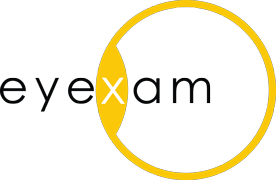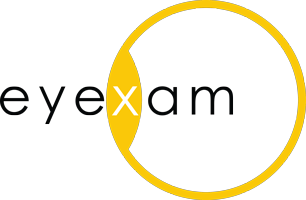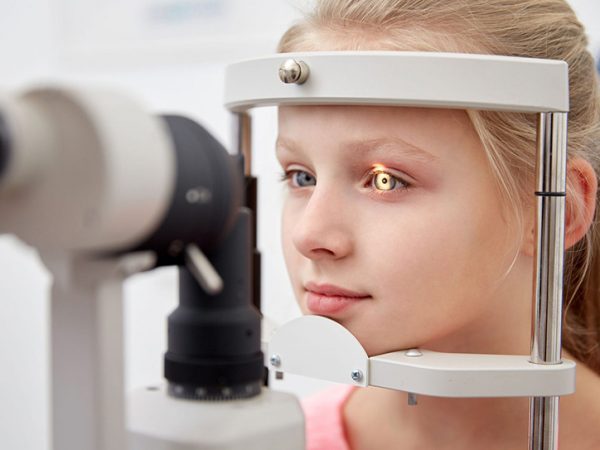
Specialized Contact Lens Fittings: Finding the Perfect Fit for Your Eyes
For many people, contact lenses are a convenient and effective alternative to glasses. However, not all eyes are the same, and finding the perfect pair of contact lenses often requires more than a standard fitting. That’s where specialized contact lens fittings come in. These fittings are designed for patients with unique vision needs, irregular eye shapes, or conditions that require custom lenses for optimal comfort and performance.
At eyeXam in Newport Beach, we offer specialized contact lens fittings to ensure that every patient enjoys clear, comfortable vision. In this blog post, we will explore the importance of these fittings, the types of lenses available, and how the process can help you find the best lenses for your eyes.
Why Specialized Contact Lens Fittings Matter
Many patients can wear standard soft contact lenses without any issues. However, if you have specific eye conditions, irregularities in your corneas, or unique visual requirements, traditional lenses may not provide the clarity or comfort you need. In these cases, specialized contact lens fittings are essential to customize the lenses to your specific eye shape and condition.
Here are some reasons why you might need a specialized fitting:
1. Irregular Corneas
Conditions such as keratoconus, where the cornea becomes thin and cone-shaped, or corneal scarring from injury or surgery, can make it difficult to wear standard lenses. Specialized lenses like scleral lenses or hybrid lenses are often the best solution for providing clear, stable vision.
2. Astigmatism
Astigmatism is a common condition where the eye’s cornea is unevenly curved, causing blurry or distorted vision. For patients with significant astigmatism, traditional soft lenses may not correct vision adequately. Toric contact lenses are designed specifically for astigmatism, providing clearer, sharper vision.
3. Presbyopia
As we age, presbyopia—a condition that affects the ability to focus on close objects—becomes more common. Multifocal or bifocal contact lenses are available to help patients with presbyopia see both near and far clearly without the need for reading glasses.
4. Dry Eyes
For patients with chronic dry eyes, wearing contact lenses can sometimes cause discomfort or irritation. Specialized lenses, such as scleral lenses, can provide moisture to the eye’s surface and relieve the symptoms of dry eyes while offering clear vision.
Types of Specialized Contact Lenses
At eyeXam, we offer a range of specialized contact lenses designed to address various eye conditions and provide the best fit and comfort for our patients. Below are some of the most common types of specialized lenses we use:
1. Toric Contact Lenses for Astigmatism
Toric lenses are designed to correct astigmatism by compensating for the irregular curvature of the cornea. Unlike standard spherical lenses, which are the same power in all directions, toric lenses have different powers in different parts of the lens to correct both nearsightedness or farsightedness and astigmatism.
Benefits of Toric Lenses:
- Correct astigmatism along with other vision issues
- Stabilize on the eye to maintain consistent vision
- Available in both soft and rigid gas-permeable (RGP) materials
2. Multifocal and Bifocal Lenses for Presbyopia
For patients who need help seeing both near and far objects, multifocal and bifocal contact lenses offer a great alternative to reading glasses. These lenses contain multiple prescriptions in one lens, allowing for clear vision at different distances.
Benefits of Multifocal/Bifocal Lenses:
- Eliminate the need for reading glasses
- Provide clear vision at all distances
- Available in soft, RGP, and hybrid options
3. Scleral Lenses for Irregular Corneas and Dry Eyes
Scleral lenses are larger than traditional contact lenses and rest on the sclera (the white part of the eye) instead of directly on the cornea. This design makes them ideal for patients with irregular corneas, such as those with keratoconus, or patients who experience severe dry eyes.
Benefits of Scleral Lenses:
- Vault over the cornea to provide stable, sharp vision
- Create a fluid reservoir to keep the eyes hydrated
- Ideal for patients with corneal irregularities or severe dry eye
4. Rigid Gas-Permeable (RGP) Lenses
RGP lenses are made of durable plastic that transmits oxygen to the eyes, making them a healthy and long-lasting option. While they may take longer to get used to compared to soft lenses, RGP lenses often provide sharper vision, especially for patients with astigmatism or irregular corneas.
Benefits of RGP Lenses:
- Provide crisp, clear vision
- Durable and long-lasting
- Less prone to drying out compared to soft lenses
5. Hybrid Contact Lenses
Hybrid contact lenses combine the comfort of soft lenses with the clarity of rigid lenses. They feature a rigid center for clear vision and a soft outer ring for comfort. These lenses are often recommended for patients with keratoconus or those who need the stability of RGP lenses but want more comfort.
Benefits of Hybrid Lenses:
- Offer the best of both worlds: comfort and clarity
- Provide excellent vision for patients with irregular corneas
- Suitable for patients who find RGP lenses uncomfortable
The Specialized Contact Lens Fitting Process
At eyeXam, the specialized contact lens fitting process is designed to ensure that every patient finds the perfect lenses for their needs. Here’s what you can expect during your fitting:
1. Comprehensive Eye Exam
The first step in the fitting process is a thorough eye exam. This exam will assess your overall eye health, check your vision prescription, and identify any underlying conditions that may affect your ability to wear certain types of contact lenses.
2. Corneal Measurements
Precise measurements of your cornea are essential to finding the right lenses. Using advanced imaging technology, we will measure the shape and curvature of your cornea to determine which type of lens will provide the best fit and vision correction.
3. Lens Selection
Based on your eye exam and corneal measurements, your optometrist will recommend the best type of contact lenses for your specific needs. Whether you need toric lenses for astigmatism, scleral lenses for dry eyes, or multifocal lenses for presbyopia, we will guide you through the options and help you make the best choice.
4. Trial and Follow-Up
Once your lenses are selected, we will provide trial lenses for you to wear. During this trial period, we will assess the fit and comfort of the lenses and make any necessary adjustments. Follow-up appointments ensure that your lenses are providing the best possible vision and comfort.
Why Choose eyeXam for Specialized Contact Lens Fittings?
At eyeXam in Newport Beach, we pride ourselves on providing personalized care to each of our patients. Our specialized contact lens fittings go beyond the standard approach, ensuring that every patient receives the perfect lenses for their unique needs. With advanced diagnostic tools, a wide range of lens options, and a commitment to excellence, we help our patients achieve clear, comfortable vision every day.
Specialized Contact Lens Fitting in Newport Beach, CA
Finding the right contact lenses is about more than just vision correction—it’s about achieving the perfect balance of clarity, comfort, and eye health. Whether you have astigmatism, presbyopia, dry eyes, or irregular corneas, specialized contact lens fittings at eyeXam can provide the customized solution you need.
If you’re ready to explore your options for contact lenses, contact us today to schedule your personalized fitting and take the first step toward better vision.





